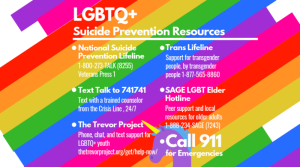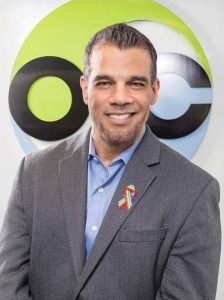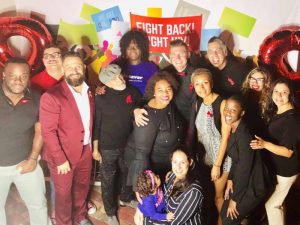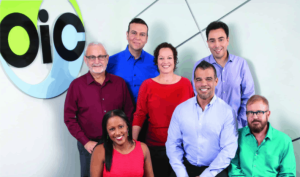What Is HPV?
- What is HPV?
- How do I know if I have HPV?
- How is HPV diagnosed?
- If I have HPV, am I going to get cancer?
- Can HPV be cured?
- How is HPV prevented?
HPV stands for human papillomavirus, the most common sexually transmitted disease in the U.S. The illness currently affects 79 million HPV sufferers, many in their late teens and early 20s. One reason for its rapid spread is that many patients are unaware that they have it and unknowingly transmit the disease to others.
How is this possible? Many patients with HPV are asymptomatic, which means they do not experience symptoms of discomfort from the illness. Because of this, many doctors recommend regular testing among social individuals to curb the spread of the disease.

What Is HPV?
There are more than 200 kinds of human papillomaviruses. You may have heard about sexually transmitted HPVs, which patients can contract through vaginal, oral, or anal sex. Certain strains of HPV can cause warts that lead to cancer. Other HPV strains don’t cause any physical damage or symptoms at all.
HPV stems from the papillomaviridae family of viruses. Patients can become infected by more than one type of these viruses at a time, and more than 40 types of HPVs are transmitted through sexual contact, infecting the genitals and anus within the skin or mucous membranes. If left untreated, these forms of the virus can turn cancerous. Of the 200 HPVs that we know of, about 14 place you at a higher risk of developing cancer. Out of the strains that can cause cancer, HPV16 and HPV18 account for 70% of cases.

How Do I Know If I Have HPV?
Most people who have sex carry some form of HPV without showing symptoms. Most of the 200 HPV viruses are harmless and will go away on their own. However, in some cases, you may develop warts on your genitals or other parts of the body.
Genital warts can show up anywhere from within a week of contracting the virus to years after you had sex with someone infected with HPV. The person you received the virus from may not have had symptoms of HPV and infected you without knowing it. For women, HPV genital warts typically appear on the vulva, anus, cervix, or within the vagina. In men, genital warts appear around the anus, penis, or scrotum.
HPV can also cause common warts on the hands or fingers as well as plantar warts on the balls of your feet or heels.

How Is HPV Diagnosed?
A doctor may be able to diagnose HPV by examining your genital warts. If warts are not present, your physician may use other forms of testing to diagnose the disease:
- Acetic Acid Test (doctors apply a vinegar solution to the genitals to improve the visibility of flat warts that you may not normally notice)
- Pap Test (doctors collect cells from the vagina or cervix to look for abnormalities)
- HPV DNA Test (cells taken from the cervix are examined for high-risk HPV cells)
Normally, a woman’s Pap test is part of her annual wellness exam. However, not all Pap tests identify HPV directly. Instead, a Pap test is an excellent tool to spot very early changes in cervical cells that may become cancerous. If you are over 30 years old and have regular Pap tests, your doctor may still want to test you for HPV.

If I have HPV, am I Going to Get Cancer?
Having an HPV diagnosis does not mean you will develop cancer. While most cervical cancers are caused by HPV, it may take 20 years for cancer to develop after an HPV infection. Your increased risk is the reason why doctors recommend regular Pap screens to detect precancerous changes in the cervix.
There is a link between HPV and cancer for both men and women. However, a healthy immune system can often suppress an HPV infection to prevent cancer cells from developing. Where doctors become concerned is if you have a long-lasting HPV infection from one of the 14 viruses linked to cancer. These viruses can turn into abnormal cells called squamous cell carcinomas, or adenocarcinomas. They can occur in the throat, tongue, anus, penis, vagina, cervix, and vulva.
In the U.S., high-risk HPV infections result in 3% of all the cancers diagnosed in women and 2% of all the cancers in men each year. The Centers for Disease Control & Prevention (CDC) reports that between 2015 and 2019 (the latest data available), approximately 47,199 new HPV-related cancers occurred in the U.S.
Of that number, 26,177 were women and 21,022 were men. Cervical cancers were the most common HPV-related cancer in women. Oropharyngeal cancer (throat cancer) was more common in men.

Can HPV Be Cured?
There is no cure for HPV. Most of the time, HPV has no symptoms and is not a concern. However, in a small number of cases, doctors must be more vigilant and track abnormal cell activity that can lead to cancer.
Your doctor may recommend a colposcopy—a procedure involving a specialized magnifying lens that allows the doctor to look closely at the skin of the vulva, vagina, and cervix for precancerous changes in these areas. While the disease does not have a cure, symptoms can be. Genital warts can be treated with salicylic or trichloroacetic acid, imiquimod, or podofilox cream to remove them.
If the doctor finds you have a cancerous HPV viral strain, it is vital that you keep up with regular exams and check-ins. Oftentimes, doctors take a wait-and-see approach to detect cell changes that indicate a cancerous form of HPV. Even if a cancerous HPV strain is present, it may not lead to cancer. Sometimes the cell changes will heal on their own.

How Is HPV Prevented?
HPV can be prevented with the HPV vaccine, which protects against strains of HPV that cause cancers and genital warts. The latest HPV vaccine is Gardasil 9, which is recommended for children and adults, aged nine through 45 years.
You can still receive the vaccine even if you tested positive for HPV, have an abnormal pap smear, or develop genital warts. The HPV vaccine will not treat these conditions or cure already active HPV. However, it will protect you from HPV types 6, 11,18, 31, 33, 45, 52, and 58.
You can also prevent HPV through abstinence from sex entirely or by limiting the number of sexual partners you have. Using condoms for sexual encounters can lower your risks, as well.
For women, having regular pap smears is an excellent preventative measure to catch abnormal cells early before they turn cancerous.
The Orlando Immunology Center is Central Florida’s comprehensive wellness center for sexually active adults. We offer comprehensive STD screening and preventative treatments to keep individuals like you safe from the spread of viral illnesses.
Call in today to learn more about our services and how we can help.
More Articles
Dr. DeJesus Recognized by Orlando Magazine
For the 5th consecutive year, Dr. DeJesus has been recognized by his peers in Orlando Magazine for his work as medical director at Orlando Immunology Center. Dr. DeJesus is a graduate from the University of Puerto Rico, School of Medicine. He completed his Internal Medicine training and Infectious Disease fellowship at the Medical College of…
Read MoreJoin OIC at the 2015 AIDS Walk Orlando
Orlando Immunology Center is pleased to announce that we will again be sponsoring a team at this year’s 2015 AIDS Walk Orlando. If you are interested in joining our team or donating to this worthwhile cause, please let us know. Saturday, March 28, 2015 In Florida, 15% of all new HIV infections reported among females…
Read MoreOIC Wins Wave Award for Favorite Local Healthcare Professional
The Orlando Immunology Center (OIC) announced today they have received the Central Florida/Orlando 2015 Watermark Awards for Variety and Excellence (WAVE) Award for favorite local healthcare professional. “We see this as a huge honor and will continue to do everything in our power to help patients from all walks of life be healthy, happy and…
Read More“Let’s Talk About PrEP” Video Goes ‘Viral’
The fun and educational video about HIV prevention goes viral in the best possible way Howard Brown Health is one of the largest LGBTQ health organizations in the country and they just released this new song and music video, “Let’s Talk About PrEP,” to continue raising the visibility of pre-exposure prophylaxis (PrEP) in the fight…
Read MoreWorld Suicide Prevention Day Orlando
World Suicide Prevention Day (WSPD), on 10 September, is organized by the International Association for Suicide Prevention (IASP). WHO has been co-sponsor of the day. The purpose of this day is to raise awareness around the globe that suicide can be prevented. If you, or someone you love, needs immediate assistance, please call 911. …
Read MoreDr. Edwin DeJesus on Best Doctors List by Orlando Magazine
Dr. DeJesus was recently voted “Best Doctors 2018” by Orlando Magazine for the 8th consecutive year! The Best Doctors in America® List includes the nation’s most respected specialists and outstanding primary care physicians in the nation. These are the doctors that other doctors recognize as the best doctors in their fields. They cannot pay a fee and are…
Read MoreCentral Florida HIV Planning Council’s First Open House
Come to Central Florida HIV Planning Council‘s first Open House! Everyone is welcome and a light lunch will be served. The event is at Heart of Florida United Way on Tuesday, January 15th, 2019 from 11am to 1pm. The Central Florida HIV Planning Council (CFHPC) is a community planning body. It’s responsible for HIV prevention and care for Central Florida’s…
Read MoreOIC Highlighted on 2018 Best Doctors List
OIC Highlighted on 2018 “Best Doctors List” in Orlando Magazine for the 8th consecutive year! The Best Doctors in America® List includes the nation’s most respected specialists and outstanding primary care physicians in the nation. These are the doctors that other doctors recognize as the best doctors in their fields. It is a list which is truly unbiased…
Read More5 Martin Luther King, Jr. Quotes to Inspire Better Healthcare
Dr. Martin Luther King, Jr. teachings transcend civil rights. He was a an extraordinary leader. His speeches and writings are some of the most impactful ever written. Here are 5 Martin Luther King, Jr. quotes to inspire better healthcare. We hope they empower you to live your best life and create healthy change in your community.…
Read MorePlanning Council-Ending HIV Together
The Central Florida HIV Planning Council business meeting is tonight January 30th, 2019. Where: Heart of Florida United Way, 1940 Traylor Blvd., Orlando, FL 32804 When: January 30th, 2019 Time: 5:30pm – 6pm light food, 6pm-8pm Business Meeting Everyone is welcome to join! It’s truly a community collaboration of people ending HIV together! You don’t need a medical degree, you…
Read MoreContinuing the NBHAAD Conversation
We are continuing the NBHAAD conversation and following up on our 2018 blockbuster Facebook Live Event. Last year for National Black HIV/AIDS Awareness Day (NBHAAD) we assembled powerhouses in HIV education, prevention, medical care and advocacy to discuss the most important issues facing the community. This year we are continuing the NBHAAD conversation because the…
Read MoreStay Healthy All Year – NBHAAD Health Resource Guide
Stay Healthy All Year with this NBHAAD Health Resource Guide. It’s Orlando’s ultimate 2019 NBHAAD health resource round up. On February 7th we marked National Black HIV/AIDS Awareness Day (NBHAAD) but one day is not enough for this important issue. So we created this quick reference guide with HIV facts, what you can do plus tons…
Read MoreFree Condom Locations in Orlando – International Condom Day 2019
These condoms are free because the protection they provide is priceless. Check out all the free condom locations in Orlando for International Condom Day (ICD) 2019! AIDS Healthcare Foundation (AHF) started ICD February 13, 2009. It’s an entire day to celebrate sex with condoms! You can greatly reduce the risk of STIs including HIV, HPV…
Read More











